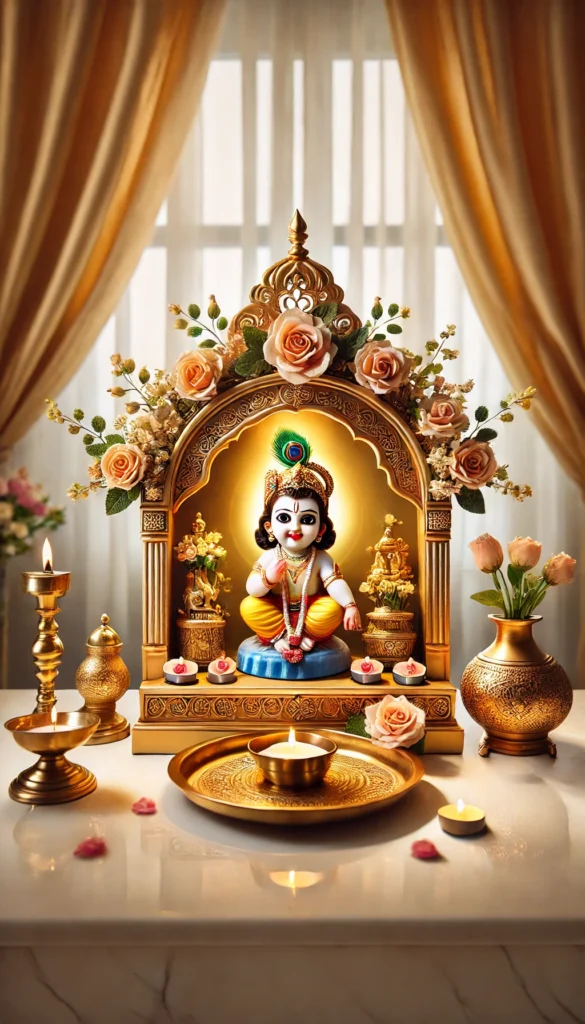Krishna is a central figure in Hinduism, celebrated as the eighth avatar of the god Vishnu and a supreme deity in his own right. Known for his enchanting persona, divine wisdom, and heroic exploits, Krishna is revered by millions and appears prominently in various texts, including the Mahabharata, Bhagavad Gita, and Bhagavata Purana. He is often depicted as a playful child, a divine lover, and a wise charioteer, symbolizing different stages of his life and multifaceted nature.
In his childhood, Krishna is famed for his mischievous deeds, like stealing butter (earning him the name Makhan Chor, or “butter thief”) and his playful interactions with the gopis (milkmaids), particularly Radha, his beloved. These stories of Krishna’s youthful exploits are cherished for their blend of innocence and divine charm, reflecting his playful nature and compassion.
As he matures, Krishna becomes a prince and a strategic guide in the Mahabharata. Serving as the charioteer and counselor to Arjuna on the battlefield of Kurukshetra, Krishna delivers the Bhagavad Gita, a philosophical discourse on life, duty, and the nature of reality. The Gita encapsulates Krishna’s wisdom, discussing karma, dharma (righteous duty), and bhakti (devotion), offering timeless guidance on how to live a balanced and fulfilled life.
Krishna’s teachings emphasize devotion, love, and surrender to the divine, making him a beloved deity among devotees. He embodies love, compassion, wisdom, and playfulness, often depicted with a flute, symbolizing the call of divine love that awakens the soul. Celebrated in festivals like Janmashtami, which marks his birth, Krishna remains one of the most adored and worshipped deities in Hinduism, representing a path of devotion, wisdom, and joy.

